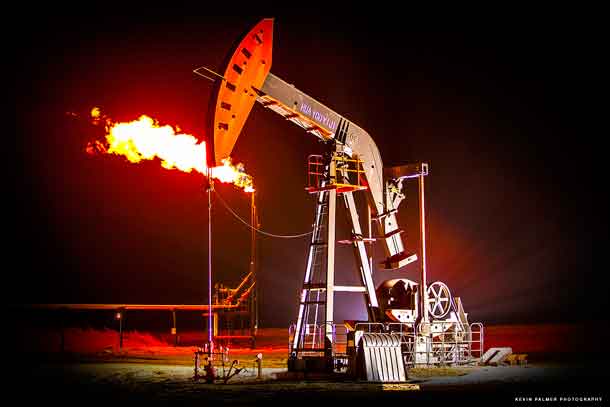OTTAWA – NEWS – Environment Minister Steven Guilbeault unveiled proposed regulations on Monday that aim to significantly reduce methane emissions from Canada’s oil and gas production sites. By 2030, the plan is to nearly eliminate the controlled release or burning of methane in these sectors, signalling a robust approach to environmental conservation.
Introduction to New Methane Regulations
The proposed measures are part of Canada’s effort to cut methane leaks and releases from the oil and gas industry by at least 75% from the levels recorded in 2012. This ambitious target surpasses the existing goal of a 40 to 45% reduction by 2025, marking a substantial escalation in the country’s environmental policies.
The Importance of Reducing Methane Emissions
Methane, though shorter-lived in the atmosphere compared to carbon dioxide, is significantly more efficient at trapping heat. This makes reducing methane emissions a critical strategy in mitigating global warming. Guilbeault, speaking at COP28, the United Nations global climate talks in Dubai, emphasized the role of methane emission control as a key lever against climate change.
Cost-Efficiency and Industry Impact
Interestingly, controlling methane emissions is not only environmentally beneficial but also cost-effective. Since some of the captured methane can be sold, it offers a financially viable solution for the industry. However, the expected cost to the industry for implementing these regulations between 2027 and 2040 is estimated at around $15 billion.
Challenges in Methane Measurement and Reporting
A 2021 federal report indicated Canada was on track to meet its 2025 methane reduction target. However, recent analyses have raised questions about the accuracy of methane leak and release measurements, suggesting under-reporting of actual emission levels. To address this, Guilbeault announced a $30 million investment in a methane “centre of excellence” to enhance reporting accuracy.
Details of the Proposed Regulations
The draft regulations, set to be published in mid-December, will require oil and gas companies to significantly reduce flaring or venting of methane, with certain exemptions for safety. These regulations are also designed to prevent fugitive methane leaks through enhanced inspections and repair protocols.
The Role of Flaring and Venting in Methane Emissions
Flaring and venting are common practices in the oil and gas industry, involving the burning and releasing of waste methane, respectively. The new regulations aim to curb these practices, which are significant contributors to methane emissions.
Success of Existing Regulations and Opposition Views
Canada’s existing methane regulations have shown effectiveness, with over nine million tonnes of emissions eliminated in 2020. However, the new proposals have met with criticism from some quarters, including Alberta Premier Danielle Smith, who described them as “costly, dangerous, and unconstitutional.”
In a joint statement from the Alberta Premier and the Alberta Environment Minister:
“The federal government has unilaterally established new methane emissions rules and targets to help win international headlines. Instead of building on Alberta’s award-winning approach, Ottawa wants to replace it with costly, dangerous and unconstitutional new federal regulations that won’t benefit anyone beyond Environment and Climate Change Minister Steven Guilbeault’s post-office career.
“Managing emissions from Alberta’s oil and gas industry is our constitutional right and responsibility, not Ottawa’s, and we are getting the job done. Using a province-led approach, Alberta has already reduced methane emissions from the oil and gas sector by 45 per cent – hitting our target three years early – and we’re just getting started.
“Meanwhile, not only is it illegal for Ottawa to attempt to regulate our industries in this manner, Ottawa also hasn’t even hit one of its past arbitrary and unscientific emissions targets largely because it has little to no credible expertise regulating the natural resource, agricultural and other industry sectors in this space.
“Ottawa could have helped us keep reducing emissions with joint incentive programs in line with Alberta’s Emissions Reduction and Energy Development Plan. It could have listened to the Supreme Court’s declaration that the Impact Assessment Act was unconstitutional and abandoned this kind of arrogant and ineffective scheme. Instead, these new regulations threaten our successful province-led approach and impede good work that’s already underway.
“Once again, the federal government is setting unrealistic targets and timelines. Infrastructure can only be updated as quickly as technology allows. For example, Alberta will not accept nor impose a total ban on flaring at this time, as it is a critical health and safety practice during production. Any regulation that completely prohibits this is putting lives at risk. A total ban would also be costly, resulting in shut-ins and loss of production.
“This approach will also cost tens of billions in infrastructure upgrades, yet Ottawa has provided virtually no financial support to do so. Thousands of Albertans could be put out of work in the coming years due to these costly regulations. A federal government willing to invest $37.7 billion into just three battery plants in Ontario and Quebec cannot credibly refuse to provide tax credits and financial incentives for producers in Alberta and Saskatchewan to assist with achieving a carbon-neutral economy by 2050.
“For years, Alberta, not Ottawa, has done the hard work and achieved results. We strongly support reducing methane emissions and have invested tens of millions into developing these technologies. Minister Guilbeault must work with us, and not against us, to keep cutting methane emissions and charting a course for carbon neutrality by 2050.
“Given the unconstitutional nature of this latest federal intrusion into our provincial jurisdiction, our government will use every tool at our disposal to ensure these absurd federal regulations are never implemented in our province.”







